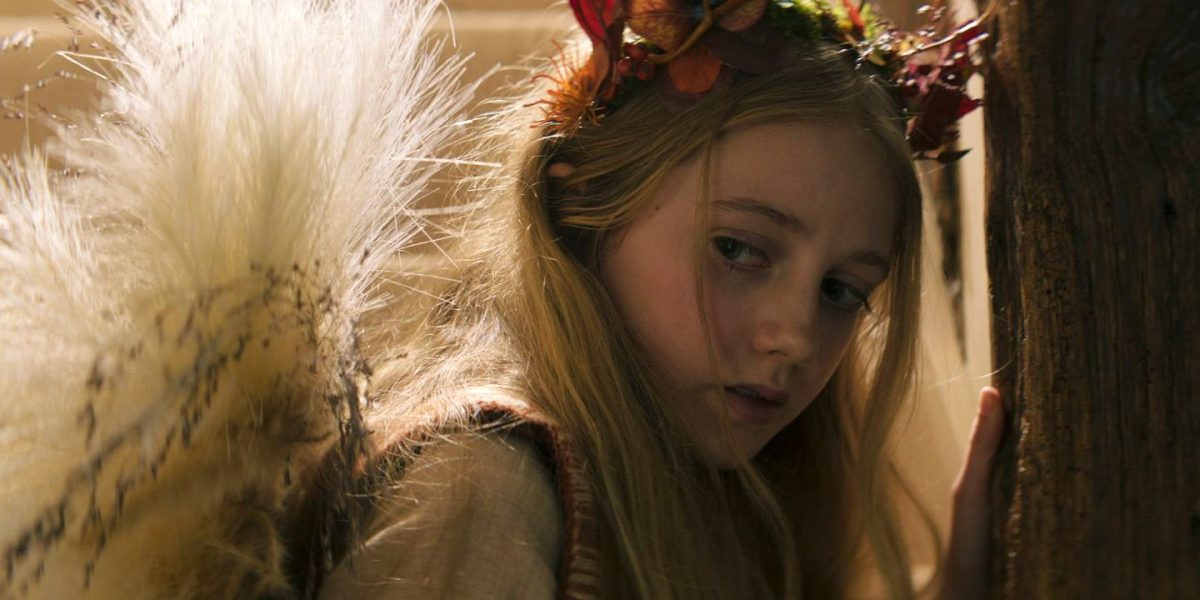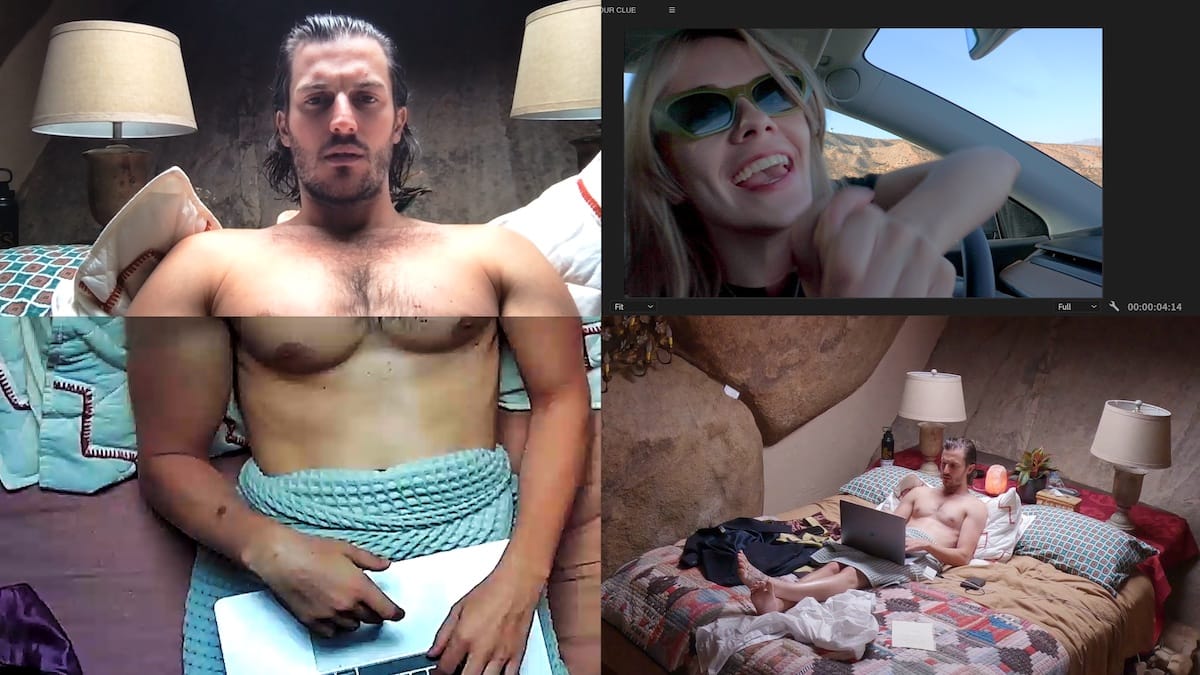
Folk Horror Movie Completely Misunderstands What Makes It Work
Dec 7, 2023
Summary
Lord of Misrule is an underachieving film with good ideas buried under clichés, wasting its potential for compelling drama. The movie lacks suspense and fails to create fear because it assumes the supernatural and everyone’s involvement from the beginning. The film’s storytelling and lack of understanding about its premise hinder the viewer’s immersion, overshadowing the intriguing imagery.
The feeling I least want to be my prevailing reaction to a movie before sitting down to review it is frustration, because I find it challenging to write fairly about wasted potential. Lord of Misrule is not a bad film, but it is an underachieving one. The good ideas it has are buried under too much cliché to breathe. It spends so much energy pretending the things we know are happening might not be, and squanders some intriguing imagery and traces of characterization that had the makings of compelling drama. Even the ending, which takes an interesting, unearned turn, does not salvage what came before so much as illuminate a better path the filmmakers did not take. Having potential at all means there must be things to recommend it, and there are – but it becomes difficult to think of them as positives when they are so intertwined with the movie’s failings.
Set in an English countryside village, Lord of Misrule is centered on Rebecca Holland (Tuppence Middleton), a minister who recently moved to take up the local parish while her husband Henry (Matt Stokoe) works on a book. Her church is sparsely attended; as the town gears up for its annual harvest festival, it seems like folklore might have a stronger foothold. Rebecca’s daughter, Grace (Evie Templeton), having enthusiastically embraced her peers’ traditions, is this year’s Harvest Angel. But she goes missing amid the festivities, and as Rebecca searches for her, she starts to suspect the quiet village is hiding something sinister. Once true believer Jocelyn Abney (Ralph Ineson) emerges as a rival for public opinion, it becomes clear that saving her daughter could mean confronting the people she’s come to know and love – and the unearthly evil they put their faith in.
Director William Brent Bell’s folk horror movie is open from the very beginning about there being some nefarious conspiracy at work, and even, in the way Grace’s preparation is shot, the presence of something supernatural. The harvest festival is built around the ritualistic driving out of the spirit Gallowgog, who threatens their crops with blight, by the Lord of Misrule, embodied in the theatrical staging by Abney. But the nature of this arrangement is soon called into question by the almost reverent way some townspeople speak about Gallowgog. In a key scene, after she declares to a now packed church her faith in God to help her find Grace, Abney challenges her publicly. He insists that no human kidnapper has her child, and the visions of Grace that Rebecca claims to have had (played to us like genuine visitations) are not from her God. He declares, rather insensitively to a mother of a missing child, “All is as was” – one of a few refrains we will hear repeated throughout.
Consider Midsommar, which let its protagonist’s journey with grief and toward a breakup be the emotional spine of its cult horror framework, and it’s easy to see what this movie could have been had it constructed the story around such an arc for Rebecca.
As a result of both filmmaking choices and expectations of the genre, viewers of Lord of Misrule quickly become certain of two things: there is real power behind the village’s beliefs; and Rebecca’s family is being targeted by some number of their neighbors. There isn’t really any suspense in finding out how many, because our immediate assumption is that everyone is involved, no matter how sweet they looked in the first few scenes. The film doesn’t seem to understand this. It makes sense for Rebecca to pursue explanations for Grace’s disappearance that we know won’t pan out, but not for the narrative to indulge them, as if it’s keeping some mystery alive by leaving things open-ended. By similar logic, Lord of Misrule can’t derive fear from assorted “strange happenings” once we accept that the supernatural exists in this world, because why wouldn’t strange things be happening? We already know the pagans are, to a certain extent, right.
The scenes that work best are focused on deepening our understanding of this town’s religious mythology, and not only because of the quality work that went into its conception and visual representation. These moments emphasize not who is threatening the protagonist, but why, cluing us in to what they might do next; a more successful version of this movie is invested in slowly letting us see more of the frightening future that awaits Rebecca, rather than continually obfuscating it. Bell’s telling is too often lost in scenes like Rebecca visiting two elderly women at their home when one is seemingly sick, which is treated like an opportunity for a variety of generic, trailer-moment scares. Lord of Misrule feels like it was made with a lack of understanding of what actually works about its premise, and the result is a constant ebb-and-flow of being drawn in by the imagery and pushed back out by the storytelling.
It makes sense for Rebecca to pursue explanations for Grace’s disappearance that we know won’t pan out, but not for the narrative to indulge them.
The strongest evidence for this is the ending, which I won’t spoil here, except to say it really made me wish I’d watched a film that built up to it properly. Some necessary building blocks are in the text, especially Abney’s backstory and the town’s true history with Christianity, but this tale would’ve been best served as a crisis of faith story, in which a minister’s worldview is tested after being confronted with an undeniable, pagan power. Consider Midsommar, which let its protagonist’s journey with grief and toward a breakup be the emotional spine of its cult horror framework, and it’s easy to see what this movie could have been had it constructed the story around such an arc for Rebecca. Unfortunately, the movie we got isn’t nearly close enough for me to recommend it.
Lord of Misrule releases in theaters and on-demand Friday, December 8. The film is 104 minutes long and is not currently rated.
Publisher: Source link
Why Angelina Jolie Won’t Talk About Brad Pitt Divorce
Why Angelina Jolie Won't Talk About Brad Pitt Divorce For a quick reminder, Brad and Angelina started dating back in 2005 after meeting on the set of their movie Mr. & Mrs. Smith. They didn’t get married until August 2014,…
Jan 6, 2025
Bruce Willis’ Wife Emma Reacts to Demi Moore’s 2025 Golden Globes Win
Demi—who wore custom Armani Privé to the event—beat out fellow nominees Amy Adams, Cynthia Erivo, Karla Sofía Gascón, Mikey Madison and Zendaya in her category. And when accepting her award, the 62-year-old shared a powerful message on overcoming a "low point"…
Jan 6, 2025
Can You Guess The Celebrity Based On A Photo Of Their Tattoos?
Hopefully, this quiz leaves a mark on you!View Entire Post › Disclaimer: This story is auto-aggregated by a computer program and has not been created or edited by filmibee.Publisher: Source link
Jan 5, 2025
Selena Gomez’s Celebrity Crushes Were Chad Michael Murray & Jesse McCartney
Selena Gomez's heart wants what it wants. And when she was younger, the Only Murders in the Building star's heart was reserved for her two major celebrity crushes: Chad Michael Murray and Jesse McCartney. In fact, she recalled a specific…
Jan 5, 2025











